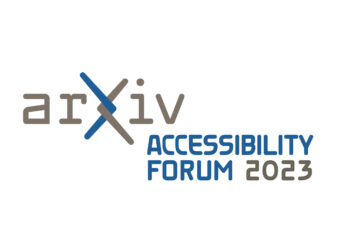Editor’s Note: Today’s post is by Charles Whalley. Charles is Head of Journals Publishing at the British Pharmacological Society. He is also a member of the National Union of Journalists, which covers staff in academic publishing.
Last month, a group of US employees of the non-profit publisher PLOS announced on Twitter that they had formed a union and were seeking formal recognition from the organization, with stated aims to “work for equity, integrity, and dignity”. It has been welcomed by many, including, notably, PLOS co-founder Michael Eisen. But Eisen’s favorable view of unionization at PLOS is evidently not shared by its current leadership, who first asked for “time to understand the complexities” in a public statement, before sending out an email to all staff arguing that unionization would make it “immeasurable harder” to “make PLOS a better place”. And so, although things may change, early indications suggest that PLOS employees seeking union recognition are in for a struggle. (In some respects, the US legal framework for this process encourages it to be lengthy, as employers have no obligation to do anything other than stall.) The start of this struggle has been conducted in the open, with the union clearly deciding that publicity will be in their favor, encouraged by the expressions of support from the scientific community (and from their co-founder). As PLOS has spent its first two decades in a leading position in academic publishing, many will be watching how it handles this significant development.

Why are the unionized employees taking this step? Should PLOS enter into the requested recognition agreement, the publisher would be obliged to negotiate terms and conditions with the union for represented staff. The announcement follows recent similar attempts by staff at other publishers, including US staff at Oxford University Press and Duke University Press. The PLOS Union may be seeking to emulate publishing workplaces that already have recognized unions, such as Springer Nature and Taylor & Francis in the UK, where employees are an everyday, integrated part of decision-making around things like pay, parental leave, or homeworking policies. Evidence shows that, as you may expect, unionized workplaces have higher, more equal pay, less turnover, and greater employee well-being. Seeking these things, people in all industries are increasingly looking to trade unions; last year saw a “union boom” in the US and the highest level of industrial action in the UK since the 1980s. Just as the PLOS Union may be seeking to emulate other unionized workplaces, other publishing staff without unions may be looking at PLOS as a pattern for how unionization may progress within their workplace.
As posts in The Scholarly Kitchen have definitively documented, the work of academic publishing is difficult and diverse. It is also work that is changing rapidly. Publishers are reacting to – or exerting pressure towards – greater quantity at less cost, with increased complexity and costs of things like research integrity responses, peer review processes, and even business models. In this context, publishing staff are seeing their workloads increase or change, and at times outsourced to a ‘content solutions provider’. Machine learning tools have already encroached on things like copyediting and now may begin to expand on other editorial functions (e.g., peer review). Inevitably the confidence of employees in their leadership to successfully and fairly navigate this landscape without their meaningful input may be tested. And on top of this, of course, we have had the stresses of the COVID-19 pandemic, where publishers (including PLOS) have closed or shrunk office space, and of global inflation, where employees have seen their costs increase. In the UK, these pressures have caused growing industrial discontent in many sectors; for instance, university staff are striking in a dispute with universities.
In this context, the unionization of PLOS employees is a familiar story. However, aspects of it are specific to PLOS. In a recent edition of his newsletter Journalology, James Butcher describes the picture from the outside: as a mostly “per-article” business, PLOS’ output, and so its likely income, has been relatively flat in the last few years and has fallen since its peak in 2013. In the last 5 years, new commercial publishers – namely, Frontiers and MDPI – have overtaken it (as they have many others). As Butcher argues, although PLOS’ initial growth was impressive, the world has caught up with it. Its continued success is not assured in the new environment, and its leadership will inevitably be thinking about the financial implications of having to negotiate, among other things, its staffing costs. But no organization’s finances are infinite. Every employer, PLOS included, must allocate resources to reflect its priorities.
One interesting aspect of academic publishing is how, despite the dominance of commercial companies, the ecosystem is populated with a diverse range of organizations, including member societies, university departments and private foundations. As the recent NeuroImage to Imaging Neuroscience exodus may show, the way in which the business of publishing is conducted and by whom is a meaningful factor for consumers in a way that isn’t necessarily true for, say, lab equipment or research supplies. Arguably, PLOS distinguishes itself from competitors in the OA marketplace on a “values” basis: it is a non-profit publisher with a clear founding mission that has the support of much of the academic community, which is often frustrated with commercial publishers. Rather than solely finding new ways to marshal volunteer labour, PLOS employs expert staff editors for its biggest journals. And recently, it has taken innovative stances on funding, with models like Global Equity, Community Action Publishing, and other partnership agreements aiming to reduce the dependency on article publishing charges. As CEO Alison Mudditt explained recently on this blog, these innovations arose from the publisher’s values of equity and inclusion.
With unionization, these same values will be tested in how PLOS engages in relations with its own employees. Arguably the true measure of inclusion is not whether an organization is willing to give a voice, but whether it is willing to give power. As a democratic complement to managerial hierarchies, trade unions are the only legally empowered mechanism for employee participation in their workplaces. It is out of recognition of the power that unions give employees that unionization is often actively (and often illegally) resisted, even by apparently progressive corporations like Apple, Amazon, Tesla, and Starbucks. In the context of PLOS, which is neither a membership organization nor a for-profit corporation, its approach to the new union is therefore potentially an opportunity for the publisher to express its values.
In attempting to promote its new partnership models with institutions or consortia, PLOS is asking customers to participate in their vision for equitable publishing. PLOS itself describes Community Action Publishing as a form of “collective action”. Library customers are varied and independent-minded and will make purchasing decisions by their own criteria. But, for the success of these partnerships in the way that PLOS has framed them, customers will also need to be persuaded of the consistency and authenticity of PLOS’ vision. A public deterioration of relations between PLOS and some of their staff may adversely affect the publisher’s ability to make this case.
After this very public opening dialogue, the likely outcome at PLOS, for now, is a period of internal discussion and negotiation, probably behind closed doors. The publisher has staff across multiple countries who will have different coverage under any unionized structure. This will inevitably take time to explore, as PLOS’ public statement and its CEO’s all-staff email argue. But observers will be watching the outcome as an indicator of how the publisher sees itself, how it wishes to be seen, and how it positions itself for the publishing landscape to come.
Discussion
2 Thoughts on "Guest Post — The PLOS Union "
A point of context and clarification is appropriate for this interesting and informative post: The post refers to a “union boom” in the US and a corresponding link to an The Guardian. This article , “US sees union boom despite big companies’ aggressive opposition,” supports the characterization of a “union boom” with two data points– a Gallup opinion poll, and the confirmation of 695 additional petitions for union elections in a country of roughly 135 million full time workers. Data from the Bureau of Labor Statistics can help to contextualize references to a “union boom” last year– a year in which the proportion of workers in a union dropped from 10.3% to 10.1%. https://www.bls.gov/news.release/pdf/union2.pdf
PLOS’s real problem is not unionization of employees. It is with the voluntary peer reviewers who did such for little and now sees PLOS as just another Corp. PLOS HAD a superior staff member who recruited the P.H.D and Post grad volunteer reviewers for small compensation due to the Status of Non for Profit. One must recall PLOS is listed as a Non for Profit organization! Resisting the unionization undermines the title of Non for Profit therefore resulting in what else unions and possibly volunteer reviewers unionizing.



